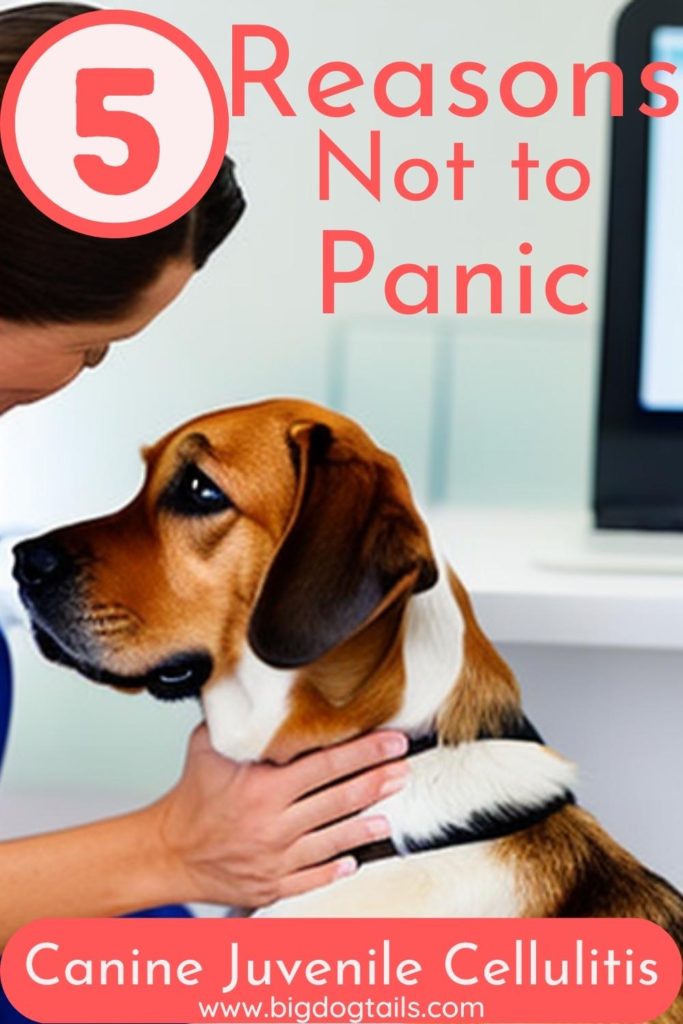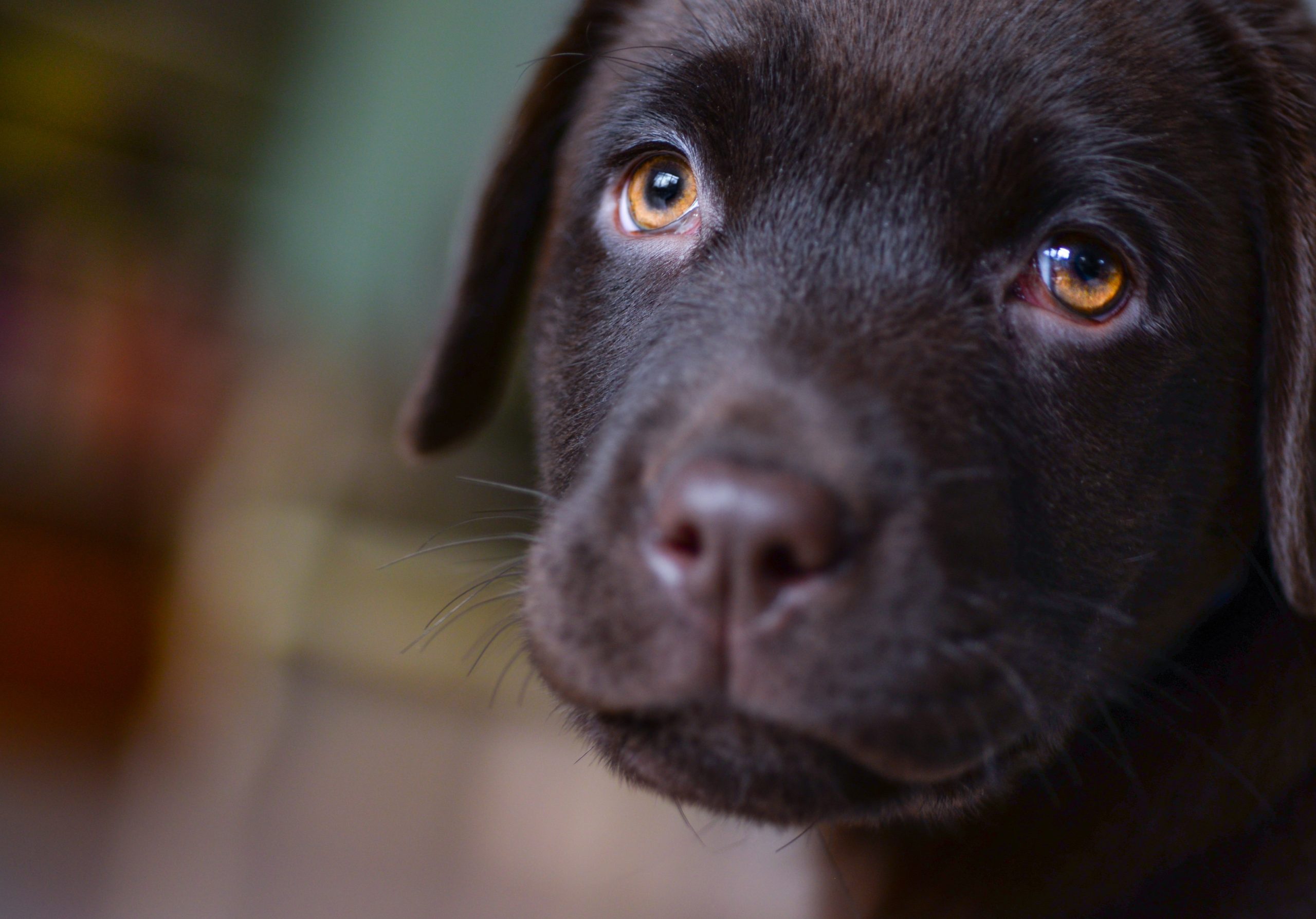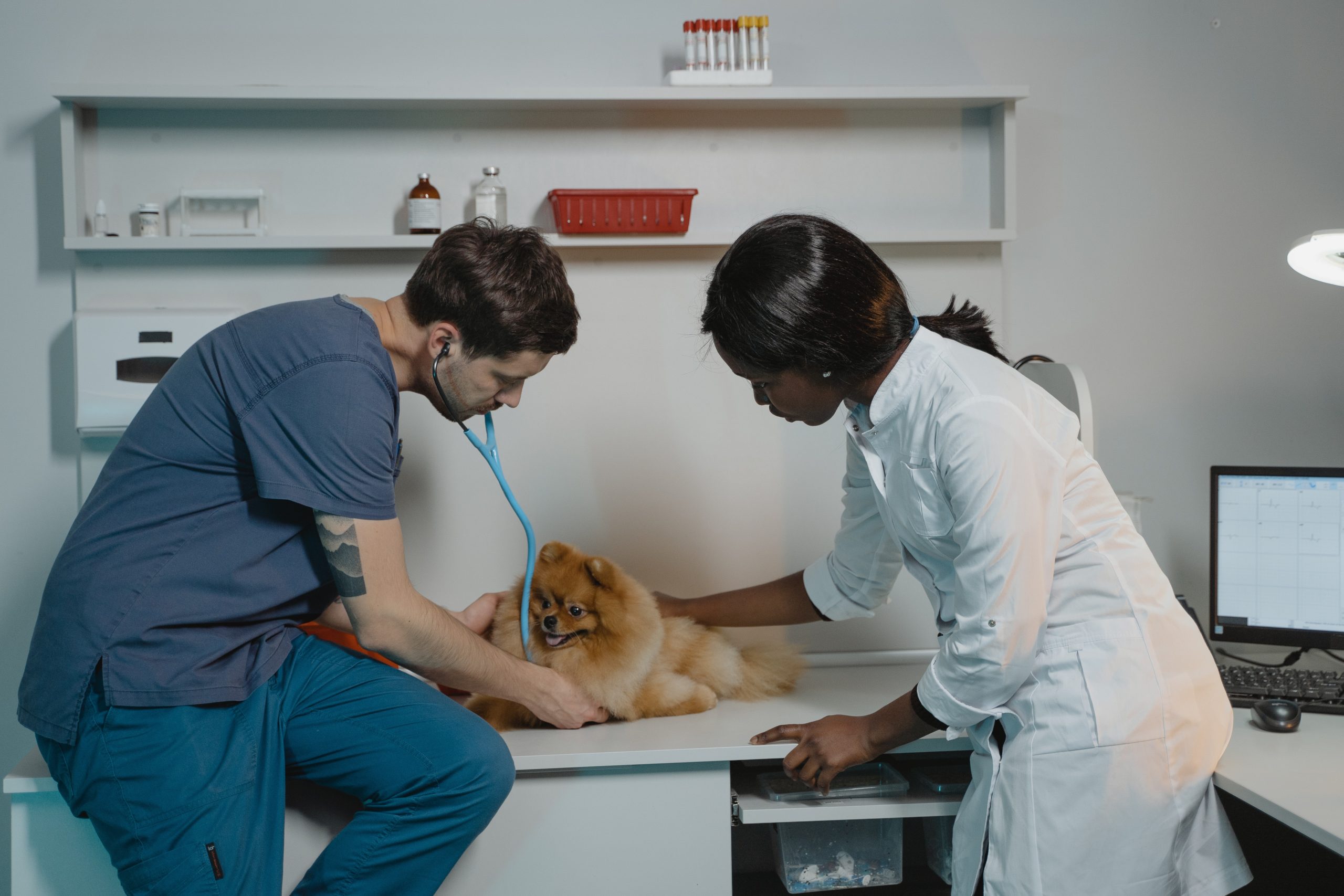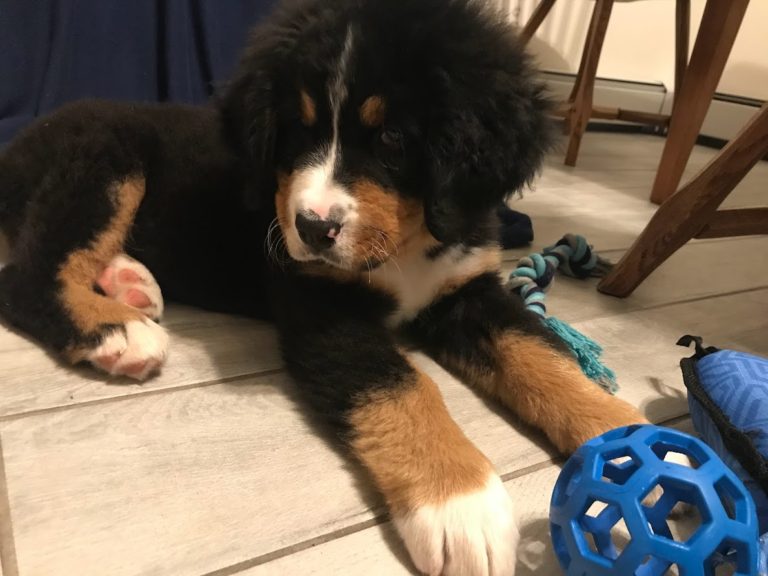Canine Juvenile Cellulitis: 5 Reasons Not to Panic
Do you know any dog parents who have experienced Juvenile Cellulitis in dogs? I didn’t, not until Ezra was diagnosed with it. It would be an understatement to say it was scary – I was terrified throughout the diagnosis and treatment and spent multiple sleepless nights crying.
If you are dealing with Canine Juvenile Cellulitis, you are not alone, so don’t panic! If you don’t believe me or you need a reminder, then keep reading – this post will address all the reasons why you shouldn’t panic.
What is Canine Juvenile Cellulitis?
Juvenile Cellulitis, also known as Puppy Strangles, is a rare autoimmune disease where the skin attacks itself. It looks like pustules that pop up around the puppy’s lymph nodes. It’s known as puppy strangles because it typically only occurs to puppies and can lead to asphyxiation if left untreated.
How do dogs contracts Canine Juvenile Cellulitis?
Unfortunately, there is no known cause of Canine Juvenile Cellulitis. What we do know is that it is an autoimmune disease. Because it is an autoimmune disease, it is not contagious. Some vets think it’s genetic and therefore hereditary, but that hasn’t been confirmed with certainty.
5 Reasons Not to Panic if Your Dog Has Juvenile Cellulitis

Reason 1: Your dog is most likely going to live.
In the past, puppies did asphyxiate from this disease, which is how it got its name – Puppy Strangles. While there is still a lot that is unknown about this disease, science has advanced far enough for vets to identify it more quickly. Most likely, if you are caring for your dog and you have a good vet, you will catch it soon enough that he will live and not asphyxiate.
Reason 2: Your dog will most likely not have another episode.
These episodes tend to only affect dogs under the age of six months old. While not impossible, it’s unlikely you will have to go through this with your pup again. It’s (most likely) a one-and-done deal (but never say never). As of writing this post, Ezra over a year old, healthy, and pustule-free.
Reason 3: It’s not contagious.
Because it’s an autoimmune disease, you cannot “catch” it like you can with some types of worms, parasites, or viruses. This means that it will not spread to any of your other animals or pets. So you don’t need to worry about keeping your pets separated until the illness has passed.

Reason 4: It will not have a lasting effect on your dog’s temperament.
Sometimes dogs display some aggression when they are medicated with steroids. Steroids are the primary prescription that will battle Canine Juvenile Cellulitis. If your dog is displaying any aggression, don’t be too alarmed by it. It’s likely due to the medicine. Your puppy will go back to being his happy self when this is all over. There is most likely no reason for his temperament or behavior to change as a result of this illness.
It’s heartbreaking seeing your pup in so much pain. Try your best to keep him as comfortable as possible.
Reason 5: It’s temporary.
Your dog will be on steroids for weeks because you have to taper off of them so it doesn’t have negative effects. Just like with humans, if you abruptly stopped taking steroids instead of tapering off, you’ll have body aches, mood swings, and extreme fatigue. But even though the medication is several weeks, the illness is much shorter. The illness itself only lasts about a week, or even less. I know it’s a really tough week to get through, but like all things in life, it will eventually end. Stay vigilant and stay calm, because the end is in sight!
Conclusion
Even though this may be the scariest point in dog ownership so far, it will soon be in the past. You will be on to bigger and brighter moments with your puppy before you know it. Hopefully this gives you some consolation and helps you stay calm during your dog’s illness.
If you are going through Canine Juvenile Cellulitis, what helped you stay calm through it all? Comment and let us know!






One Comment
Comments are closed.